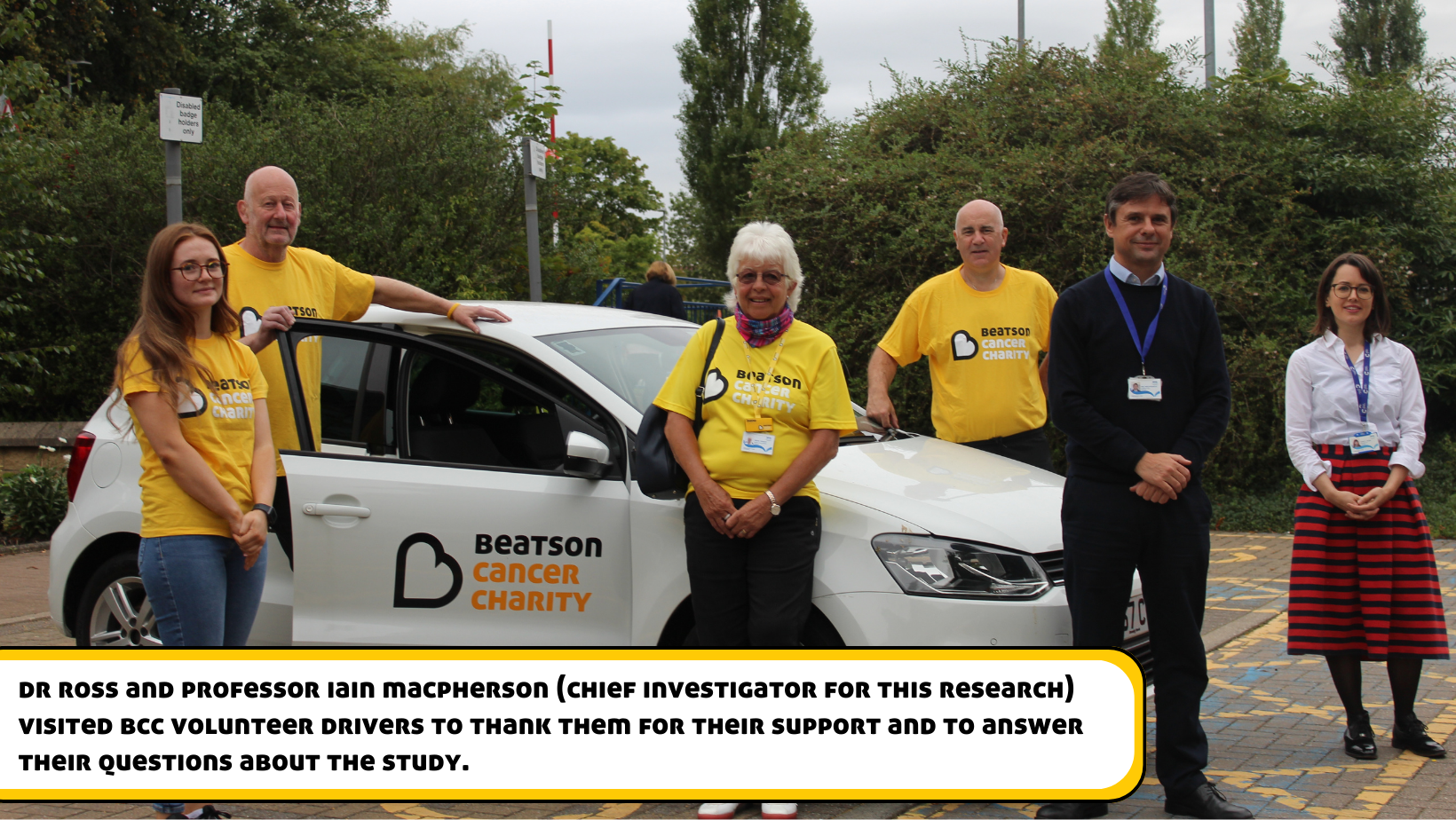Every year many patients with breast cancer are treated with chemotherapy before surgery (known as neoadjuvant treatment). The best response to chemotherapy is when no cancer cells are left at the time of the patient’s operation. Patients whose cancers respond well to chemotherapy have a reduced risk of the breast cancer returning and will live for longer. Unfortunately some breast cancers do not respond well to chemotherapy before surgery. As a result, researchers are looking at new and innovative ways to improve the response to chemotherapy before surgery to give patients with breast cancer the best chance.
The body’s gut microbiome is an ecosystem within our gut which contains a variety of bacteria which play important roles in keeping us healthy. Researchers suspect that these gut bacteria may also determine how well breast cancer patients respond to chemotherapy.
Between 2017 and 2019, Dr Kirsty Ross (Specialist Registrar in Medical Oncology at the Beatson) conducted a pilot project which investigated the role of gut bacteria in determining which early breast cancer patients have the best response to chemotherapy. This pilot project produced several interesting results which were presented virtually by Dr Ross at the 2020 European Breast Cancer Conference. Dr Ross then secured funding from the Scottish Government’s Chief Scientist Office to expand this work through a three-year research study which will involve women receiving treatment for breast cancer at the Beatson and other West of Scotland hospitals. This study aims to:
1. Address the hypothesis that the gut microbiome influences the response to chemotherapy in neoadjuvant breast cancer patients
2. Identify trends in gut bacteria that are associated with a better response to chemotherapy
3. Investigate the role that the immune system and tissues surrounding a cancer may have in working with gut bacteria
4. Explore how gut bacteria are linked with chemotherapy side effects.
This exciting research could lead onto future studies where the researchers try to recreate favourable gut bacteria trends in patients with breast cancer patients (potentially through dietary, probiotic or faecal microbial interventions) to improve the effectiveness of chemotherapy treatments and reduce side effects. The ultimate aim of this research is to reduce the risk of breast cancer recurrence and enable breast cancer patients to live for longer.

Beatson Cancer Charity Grant
Beatson Cancer Charity awarded a £15,700 grant to Dr Ross for conducting a supplementary investigation (RNA sequencing of tumour samples). The genetic information from these tumour samples will help to complement the main results from the research study.
Beatson Cancer Charity Volunteer Drivers
Dr Ross and her colleagues will analyse stool samples from women who are having a course of chemotherapy before surgery for breast cancer. Stool sample collection kits along with mini freezers for storing stool samples will be delivered to participant homes. Once a participant has provided a stool sample, they will seal it within a container and place the container within the mini freezer which is then locked. The mini freezer with the sample will be collected from the participant’s home at an agreed time and delivered to Glasgow Royal Infirmary where Dr Ross will analyse the stool sample.
Beatson Cancer Charity created a new volunteer role (Volunteer Driver) to support the logistics behind the study and is now supplying Volunteer Drivers who will assist with the delivery and collection of the equipment and stool samples. This is the first time Beatson Cancer Charity Volunteers are directly supporting a research study. The Beatson Cancer Charity Volunteer Team is working closely with Dr Ross to coordinate the allocation of volunteer drivers to delivery and collection jobs during the life of the study.
*Beatson Cancer Charity Volunteer Drivers undergo a robust recruitment process, Protection of Vulnerable Groups Membership (PVG) check, vehicle check, MOT check, insurance check, NHS induction and agree to comply with the charity’s Volunteer Code of Conduct, Data Protection Policy and Volunteer Driving Policy.*





 Donate
Donate